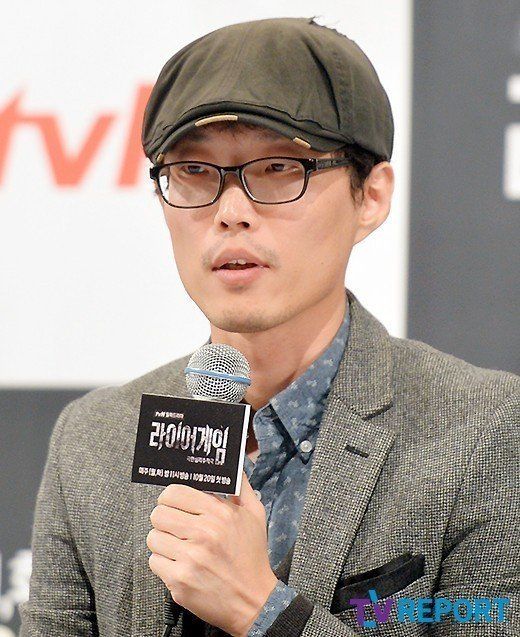Netflix is still working on this universe even though La Casa de Papel only ended last year. Money Heist: Korea Joint Economic Area, a fresh twist on this series that enjoys complex schemes, makes its debut this week. The series “Money Heist: Korea — Joint Economic Area” shows how social and economic inequality, as well as wealth disparity, can contribute to a rise in crime.
The heist action thriller series “Money Heist: Korea – Joint Economic Area” is directed by Hong-sun Kim (“Son: The Guest”). The plot centers on a gang of thieves who attempt to rob the United Korea Mint of four trillion won. North and South Korean authorities find themselves utterly outmatched as the complex plan of their leader, the Professor (Yoo Ji-Tae), begins to take shape. The robbers appear to be in the lead at every turn. If this makes you question if “Money Heist: Korea – Joint Economic Area” is based on real events, don’t worry. To answer any questions we are here.
Is Money Heist Korea Based on real events?
It’s not based on an actual story, “Money Heist: Korea – Joint Economic Area.” It’s the South Korean adaptation of the hugely successful Spanish television series “Money Heist” or La house de Papel,” which was produced by Lex Pina for Antena 3 and Netflix. The remake is also mostly fictional because the original series isn’t based on a true story. However, some aspects of the program have been taken straight from reality.
It is essentially a Koreanized version of the first La Casa de Papel. Even though the setting and title are different, the fundamental plot remains the same. A bunch of thieves decided to loot one of their nation’s largest financial institutions because they are fed up with the wealth disparity in their country. Even the names of this gang’s predecessors are the same. The Professor is available in Tokyo, Berlin, Nairobi, Helsinki, Moscow, Rio de Janeiro, and other cities.
After years of conflict and upheaval, the Korean Peninsula has decided to reunite in the remake. The Joint Economic Area, which includes the United Korea Mint among other things, is a fictionalized version of the Joint Security Area, which is a real place in the Korean Demilitarized Zone. The Mint was established to produce Unified Korea’s new currency. The Mint and the money don’t actually exist, and the unity is still only a pipe dream. In spite of this, Money Heist: Korea is not a direct remake. This new series has a few embellishments that are uniquely Korean in style. For instance, it was discovered that Berlin, the mastermind behind the initial Money Heist, was actually The Professor’s brother and was critically ill. Berlin (Park Hae-soo), a former laborer who escaped from a North Korean labor camp, appears in Money Heist: Korea.
Keo Lee, Director of Content for Netflix Korea, provided an explanation of the Netflix decision to approve the remake in a press statement on May 20, 2022.
“When this creative team came to us with their vision for a Money Heist remake, we saw the opportunity to bring a new perspective and uniquely Korean lens to this beloved story,” he said. “The original Money Heist demonstrated how superb storytelling can be loved everywhere, and Korean content has proven to have this same power. We can’t wait to see how the world will react as we unite this epic story with top Korean talent and passionate global fandom.”
According to Kim, the people in the original novel are so compelling that they would hold readers’ interest regardless of the setting. The story had a number of alterations during the adaptation process to make it more culturally, politically, and socially Korean. For instance, the renowned Dali masks from the first series were replaced with traditional Hahoe.
Masks from Korea represent another cultural shift: the money heist. The crew dons Hahoe masks rather than Dal masks. These masks, which are from Hahoe Folk Village, are often worn at the event known as Hahoe Pyolshin-gut t’al nori, which dates back to the 12th century.
According to the “Squid Game” actor, Park Hae-soo, who plays Berlin in the Korean adaptation, provided an explanation for Mask. “Unlike the Dali mask, which symbolizes freedom, the hahoe mask was originally used to mock upper-class social elites. I believe this goes well with our storyline. The hahoe mask alone creates a unique atmosphere that will mesmerize viewers,” Park said.
The remake’s scriptwriter, Ryu Yong-jae states that he was a huge fan of the original Spanish series. He said “It felt like destiny when I was offered to adapt the original story. I was intrigued by the premise of the remake because not only is it about the conflict between robbers and police, but also it adds new layers such as the tension, mistrust, and harmony between North and South Korea. A situation where thieves from North and South Korea join forces, and police from north and south join hands to stop their way adds a Korean lens into the original IP.”

The fact that Korea is bordered by land and the sea on three sides, according to Ryu, is the reason they established the Joint Economic Area. Although it is obvious that “Money Heist: Korea – Joint Economic Area” is not based on a real story, it is completely understandable if someone believes it to be.











